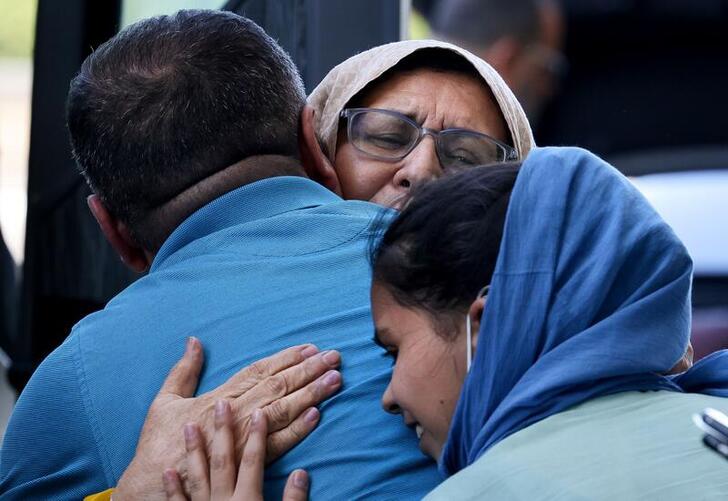KABUL -
"I've been living for several years in a rented house in the capital, Kabul, for 15,000 rupees a month ($175), and now I've lost my job, and I'm unable to pay for housing."
These words were spoken by Masoud Kamal, who decided to return to his village in Ghorband Valley in Parwan State (60 km) north of the Afghan capital.
He tells Al Jazeera Net that he decided to leave the capital and return to his village because the security situation has improved on the outskirts, as well as to search for another job there that would enable him to earn a living.
Kamal represents the case of hundreds of families who started what can be considered a "reverse migration" from the capital to the villages and towns from which they came to Kabul in the past years in search of work, in addition to the security they lost there as a result of the escalation of Taliban attacks, before they took control of the country last August .
Since the Taliban came to power recently and declared the end of the war in Afghanistan, the capital has witnessed a reverse displacement movement of thousands, after it received during the current year, and before its fall, more than half a million citizens from different states.
More than 7 million people live in Kabul, most of whom were employees and members of the security forces of the former government.
The manifestations of reverse migration from the capital to the outskirts are clear, the most important of which is the tangible decrease in congestion in the city's streets and markets.
Scenes of car queues also decreased due to the large number of vehicles and security barriers.
No jobs, no salaries
In this context, Ahmed Shakib, a former employee, tells Al Jazeera Net that the security situation in his village has improved because the American forces withdrew and the clashes stopped. Three months ago, we had land in the village where I could work, waiting for the living situation to improve and the banks to open.”
As for Asad Wahidi, a professor at Kabul University, he told Al Jazeera Net, "With the Taliban coming to power, government offices have been paralyzed, and thousands of government employees have been laid off, along with hundreds of thousands of soldiers, and they have no choice but to return to their villages after losing their jobs."
According to Abdul Kabir Khan, an official in an apartment building west of Kabul, six families left the neighborhood within four days, because they were government employees and lost their jobs.
According to Khan, who spoke to Al Jazeera Net, "the reverse migration affected the rental of homes, which decreased by nearly 40%."
Afghans arrive in the US state of Virginia after being recently evacuated from their country (Reuters)
minds immigration
In return for displacement from the capital and return to villages and towns, Afghanistan after the Taliban’s control is witnessing another manifestation of migration represented in the tendency of groups of educated and educated people to leave the country, and official data recorded the departure of about 50,000 citizens with the help of American forces to the United States and European countries.
In the opinion of the writer and political analyst, Hikmat Jalil, "We must look positively at the phenomenon of migration to villages and rural areas, but the flight of talent from the country will represent a real crisis."
Jalil says to Al-Jazeera Net, "The Taliban must provide clear guarantees to return the competencies, because the previous government spent huge amounts of money on them, and some of them studied in Western universities, and the movement cannot occupy all government departments because of the emigration of employees."
This migration also caused the closure of more than 193 media outlets after the departure of journalists and technicians working in them, and this also applies to many medical sector institutions.
impending crisis
Despite the migration of thousands of Kabul residents to the villages and countryside, there are new displaced people who are still arriving in the capital, and they need urgent assistance before the onset of winter.
"There is a need to take urgent measures to help the displaced Afghans before winter, as thousands have been displaced from their homes, including an estimated 20,000 from Panjshir state only," Minister of Refugees in the new government, Khalil Haqqani, told Al Jazeera Net.
He estimated that his country would face an imminent humanitarian crisis if aid was not delivered to it.

